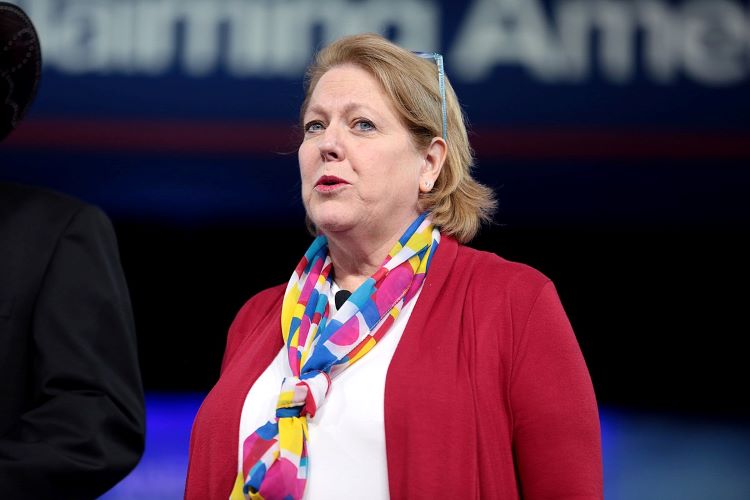Lawyer who missed deadline after spending 25 minutes trying to file ECF document gets no mercy from 10th Circuit
Trials & Litigation
Lawyer who missed deadline after spending 25 minutes trying to file ECF document gets no mercy from 10th Circuit
December 21, 2022, 12:30 pm CST
Image from Shutterstock.
A lawyer has failed to persuade a federal appeals court that his missed deadline should be excused because of his difficulty filing a complaint with an electronic case filing system.
The 10th U.S. Circuit Court of Appeals at Denver said the lawyer, Steven Call, “barely missed the deadline” when he filed a complaint for a bank that wanted to object to the discharge of a borrower’s debts. He entered the Case Management/Electronic Case Files system, known as CM/ECF, at 11:40 p.m. and was able to file the complaint at 12:16 a.m., missing the midnight deadline.
Call spent 25 minutes in the ECF system before his successful filing, when accounting for a break that he took to email his opposing counsel, the appeals court said in footnote 7 of its Dec. 14 opinion.
But Call’s problems with the integer box and his fruitless attempts to pay a filing fee in advance of the filing were not caused by any malfunction of the ECF system, according to factual findings cited by the 10th Circuit. As a result, Call’s client “has no factual basis for any relief,” said the appeals court in the opinion by Judge Harris L. Hartz.
Law.com covered the opinion and spoke with Call, a shareholder with Ray Quinney & Nebeker.
“I thought there was plenty of evidence that we had signed on and were trying and struggling to get it done,” Call told Law.com. “One entry seemed to indicate that it was entered timely. You would think courts of equity would see that I signed on 25 minutes before midnight, that the evidence and exhibits were all there, and that I would have easily filed if I had not run into that field problem.”
Call represented the State Bank of Southern Utah, which had obtained a state court judgment against Allen Beal for more than $237,000 for loans collateralized by cattle and other property. Beal defaulted on the loan, sold cattle and filed for bankruptcy, the bank alleges.
The bank had to file its complaint by April 22, 2019, which was 60 days after the first meeting of Beal’s creditors.
The appeals court described Call’s problems based on findings by the bankruptcy judge.
Call first entered the ECF system at 11:40 p.m. April 22, 2019, (although Call thought that the time was 11:35 p.m.), the 10th Circuit found. His first problem happened when he encountered an empty box labeled “Demand ($000). Call was supposed to enter the amount of the debt that the bank didn’t want discharged in thousands without dollar signs or commas. The number “2,” for example, would signify a demand for $2,000.
Call used a dollar sign and a comma and received a message that he recalled as reading “integer is missing.” Call said in an email the next day that he tried “various numbers and various configurations, including with and without dollar signs and commas,” but the system would not move to the next window. He finally inserted an inaccurate number, and the system moved to the next window, he said.
The bankruptcy court concluded, however, that Call must have inadvertently left a dollar sign or a punctuation mark in the box because there was no failure in the system. It would have moved to the next window if only numbers were typed in or the box was left blank. The court also said the message Call would have received is, “You have to enter a valid integer number.”
Call’s second problem happened when he mistakenly thought that he had to pay a filing fee before filing the complaint. Screenshots of the system show a page with the heading “Open Adversary Case,” followed by a prompt to select the form of payment and a page showing that the filing fee is $350.
The system didn’t state that the fee must be paid before the complaint is filed, however.
“Indeed,” the 10th Circuit said, “payment cannot be made until after the complaint is filed.”
“Call’s concern that he needed to pay before he could file unnecessarily delayed the filing, as he clicked on buttons within ECF and in his browser—receiving error messages and returning to ECF pages he had already seen—to try to get to a payment page before filing,” the appeals court said. “But, as the bankruptcy court found, this delay was not caused by any malfunction of the ECF system.”
When Call couldn’t find a payment page by 11:58 p.m., he left the ECF system for 11 minutes to email the complaint and exhibits to the opposing counsel. He then entered the ECF system again and filed the complaint within seven minutes.
Call told Law.com that he later learned that the system was holding the information that he typed in the demand box in a cache, and he had to sign out entirely or clear the cache.
“How would I have known that?” Call said.
He also told Law.com that a local rule should have excused the late filing. It says parties whose filings are late as a result of a technical failure by the court can seek appropriate relief.
The 10th Circuit said the local rule didn’t apply, however, because the ECF system was properly functioning during Call’s filing. The appeals court also noted that the Utah Bankruptcy Court has an ECF system help desk that attorneys can call during business hours, and that Call had to receive training before registration with the ECF system.






